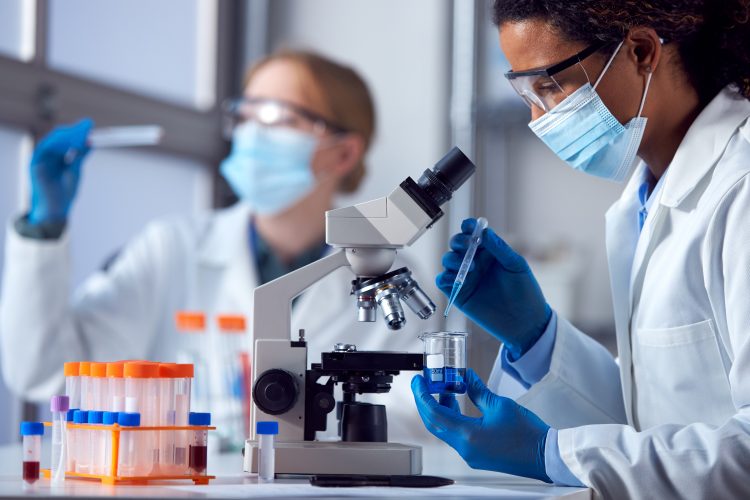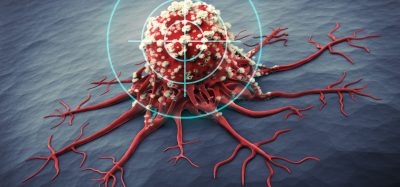Oncology advances through the lens of women in STEM
Posted: 16 December 2024 | Dr. Pooja Hingorani (Senior Medical Director of Oncology Early Development at AbbVie) | No comments yet
Dr Pooja Hingorani opens up about her journey in oncology research, the obstacles she’s overcome as a woman in STEM, and her mission to transform cancer care.


Dr Pooja Hingorani, Senior Medical Director of Oncology Early Development at AbbVie, shares her journey in STEM, from her early days in New Delhi to her impactful career in oncology research and drug development. Despite challenges as a woman in the field, Dr Hingorani built a career focused on advancing treatments for pediatric and adult cancers.
In this interview, she discusses her path to becoming a physician and clinical researcher, the obstacles she faced, and her dedication to improving outcomes for cancer patients. Dr Hingorani also shares insights into the strengths women bring to STEM, the importance of mentorship, and her vision for the future of oncology research.
Can you tell us about your journey in the field of STEM and the challenges you encountered along the way?
I was born in New Delhi, India, and grew up in a lower-middle-class family, with both of my parents working. Despite limited resources, my parents always prioritised my education, firmly believing it would positively impact my future career and life. At the time, in India, we typically had two major career choices, engineering or medicine. I opted for medicine due to my love for biological sciences. Getting into medical school was very competitive with thousands of candidates vying for a handful of positions, but I was fortunate enough to succeed.
Reduce preclinical failures with smarter off-target profiling
24 September 2025 | 15:00PM BST | FREE Webinar
Join this webinar to hear from Dr Emilie Desfosses as she shares insights into how in vitro and in silico methods can support more informed, human-relevant safety decisions -especially as ethical and regulatory changes continue to reshape preclinical research.
What you’ll learn:
- Approaches for prioritizing follow-up studies and refining risk mitigation strategies
- How to interpret hit profiles from binding and functional assays
- Strategies for identifying organ systems at risk based on target activity modulation
- How to use visualization tools to assess safety margins and compare compound profiles
Register Now – It’s Free!
Along the way, I realised that my passion was to take care of children who were sick, which led me to choose a career in pediatrics and subsequently pediatric hematology-oncology. This field allowed me the privilege of tending to children in the hospital and building long-term relationships with them and their families. Their resilience and ability to bounce back provided a constant source of strength for me to keep going despite the very hard days when I lost some precious patients to cancer.
In addition to taking care of patients, I established myself as a successful academician advancing clinical and translational research in difficult-to-treat pediatric sarcomas. This included publishing several preclinical research papers establishing LRRC15 and HER2 as potential targets in pediatric sarcomas. In addition to this, I also chaired national trials evaluating an anti-GD2 antibody in pediatric osteosarcoma. This was fuelled by my desire to bring novel therapies that are effective and less toxic to pediatric cancer patients, which is an uphill battle due to the limited therapies being tested in these patients. After many years as a hematologist-oncologist, I transitioned to the industry, and joined AbbVie in 2021, driven by my continued desire to help bring new treatment options to the global cancer community.
Opportunities in clinical research and drug development were not always easy to come by. It took perseverance, hard work, and overcoming self-doubt to build credibility.
Being a woman and an immigrant presented challenges in my professional growth along the way. As a foreign medical graduate on a visa, residency and fellowship training opportunities were restricted to a handful of programs in the US. Opportunities in clinical research and drug development were not always easy to come by. It took perseverance, hard work, and overcoming self-doubt to build credibility. I was also fortunate to be surrounded by individuals like Dr Richard Gorlick, Dr E. Anders Kolb, and Dr Roberta Adams who were and still are long-time mentors who believe in my vision and ability to help advance oncology research.
What inspired you to pursue a career in STEM, and how did you overcome any obstacles or biases you may have faced?
My inclination toward biological sciences led me to medical school to pursue a future in STEM. Focusing on pediatric cancers was motivated by the possibility of a cure. Diagnosing and treating a child with cancer always hits home, and I continue to be amazed by the resilience of these children and their families. Despite the progress we are making in curing children with cancer, there remains an unmet need for new treatments that are more effective and safer. Current chemotherapy regimens, often used to treat pediatric cancers, may come with long-term side effects for these patients.
Throughout my career, I have witnessed gender and racial biases towards women in the workplace especially when it comes to having their voices heard. This bias is often subtle, under the surface, but persistent. Growing up with limited resources and moving to a new country as a woman and an immigrant was challenging, but I always kept the patient as my north star. Through hard work, self-advocacy, and strategic collaborations, I was able to get where I am today. Building trustworthy relationships and having supportive mentors were crucial to my success. I also feel fortunate to have supportive colleagues at AbbVie who continuously encourage my dreams and help facilitate possibilities in oncology research.
Could you share an example of a specific project or research that you have worked on and how it has contributed to advancements or improvements in your field?
During my time as an academician, I was excited and passionate about my research in a rare, yet one of the most common pediatric bone cancers, osteosarcoma. Working with one of the largest cooperative groups in pediatrics, the Children’s Oncology Group, we ran quick signal-seeking trials to determine efficacy. My work helped establish how to conduct research in small patient populations and how to select appropriate clinical endpoints for these smaller trials. I am especially proud because these types of studies help lay the groundwork for future trials and hopefully for successful drug development for rare pediatric cancers.
Over the past three years in Oncology Early Development at AbbVie, I have worked on several antibody-drug conjugates from discovery to the clinic in disease areas of high unmet need. Early data suggests the potential of this approach, and I hope that we may be able to bring a novel therapeutic option to help change the clinical outcomes for patients who currently have a dismal future. I have also continued my commitment to advancing pediatric research and have supported several oncology teams at AbbVie to develop sound pediatric development strategies.
As a woman in STEM, what unique perspectives or strengths do you believe you bring to your work?
I bring diversity in experiences within oncology. I consider myself a good thinker and problem solver, thanks to my varied research experiences and overall background.
Reflecting on my journey, I never imagined being where I am today. As a woman in STEM, it’s important to have an open mind and not limit your potential. Women tend to be good listeners and team players, capable of juggling multiple tasks, and I certainly have those skills and have been able to apply them with great success.
As a woman in STEM, it’s important to have an open mind and not limit your potential.
Also, having benefited from mentorship, I understand how important it is, so I made it a point to mentor residents and fellows during my academic career and continue to mentor my colleagues at AbbVie. It’s crucial to have a female mentor who understands the unique challenges women face in leadership and STEM such as achieving work-life balance or facing scepticism about your abilities.
What advice would you give to young women who are considering a career in STEM but may be hesitant due to societal stereotypes or perceived challenges?
Challenges can be opportunities to push barriers. If STEM is your passion, pursue it. Do what you love and where you can, create value. The biggest loss is not trying. If you fail, get back up and keep going. With this attitude, there’s no reason you won’t succeed.
How do you see the representation of women in STEM changing over the years, and what further progress do you believe is needed?
The representation of women in STEM has evolved, with less bias than in previous generations. However, progress needs to be more ingrained. Organisations must understand what it means for women to enter these careers and support them in overcoming unique challenges by providing more opportunities to succeed in areas of interest. Bringing forth real change that goes deeper than the surface requires a more supportive environment. I feel lucky that AbbVie has provided me with great support from offering exciting opportunities in research to fostering an environment where women can excel in this field.
In your opinion, what can organisations and institutions do to create a more inclusive and supportive environment for women pursuing STEM careers?
Mentorship is crucial. Listening to and understanding a woman’s perspective goes a long way. Even as more women choose STEM careers, they tend to be more hesitant to speak up and share their views. Organisations should foster an environment where women feel comfortable and are encouraged to share their thoughts even if they may be distinct from others.
Looking ahead, what exciting developments or advancements do you foresee in your field of STEM, and how do you envision your own research contributing to those future innovations?
With artificial intelligence, the pace of change is exciting for STEM, whether in medicine, engineering, space, or technology. I envision a future where technological advances will allow us to better model clinical trials through improved patient selection, run studies in a much shorter period, and find ways to identify effective therapies sooner, so we can bring new treatments to the right patients more quickly. I hope what we are doing for drug development in oncology now will one day be revolutionary.
In general, I look at my son and my daughter, and I tell them while there’s value in acquiring knowledge, it’s increasingly becoming available at your fingertips or through voice commands. What will be critical in the future is to have the wisdom to ask the right questions and know how to apply this knowledge for the benefit of all humanity.


About the author
Dr Pooja Hingorani joined AbbVie in 2021, bringing more than 14 years of experience as a pediatric oncologist from Phoenix Children’s Hospital and the University of Texas MD Anderson Cancer Center. Throughout her academic career, she worked in translational and clinical research, focusing on novel therapies for pediatric cancers. Her experience in developing, conducting, and managing clinical trials, along with a strong track record in achieving grant funding and publishing peer-reviewed manuscripts in high-impact journals, underscores her commitment to advancing the field of oncology. Pooja transitioned to the pharmaceutical industry to broaden her impact on patient care, leveraging her expertise to help develop innovative cancer treatments.
Related topics
Artificial Intelligence, Cancer research, Clinical Trials, Drug Development, Immunotherapy, Translational Science
Related conditions
osteosarcoma, Pediatric Cancer, Pediatric Sarcomas
Related organisations
AbbVie
Related people
Dr E Anders Kolb, Dr Pooja Hingorani, Dr Richard Gorlick, Dr Roberta Adams








